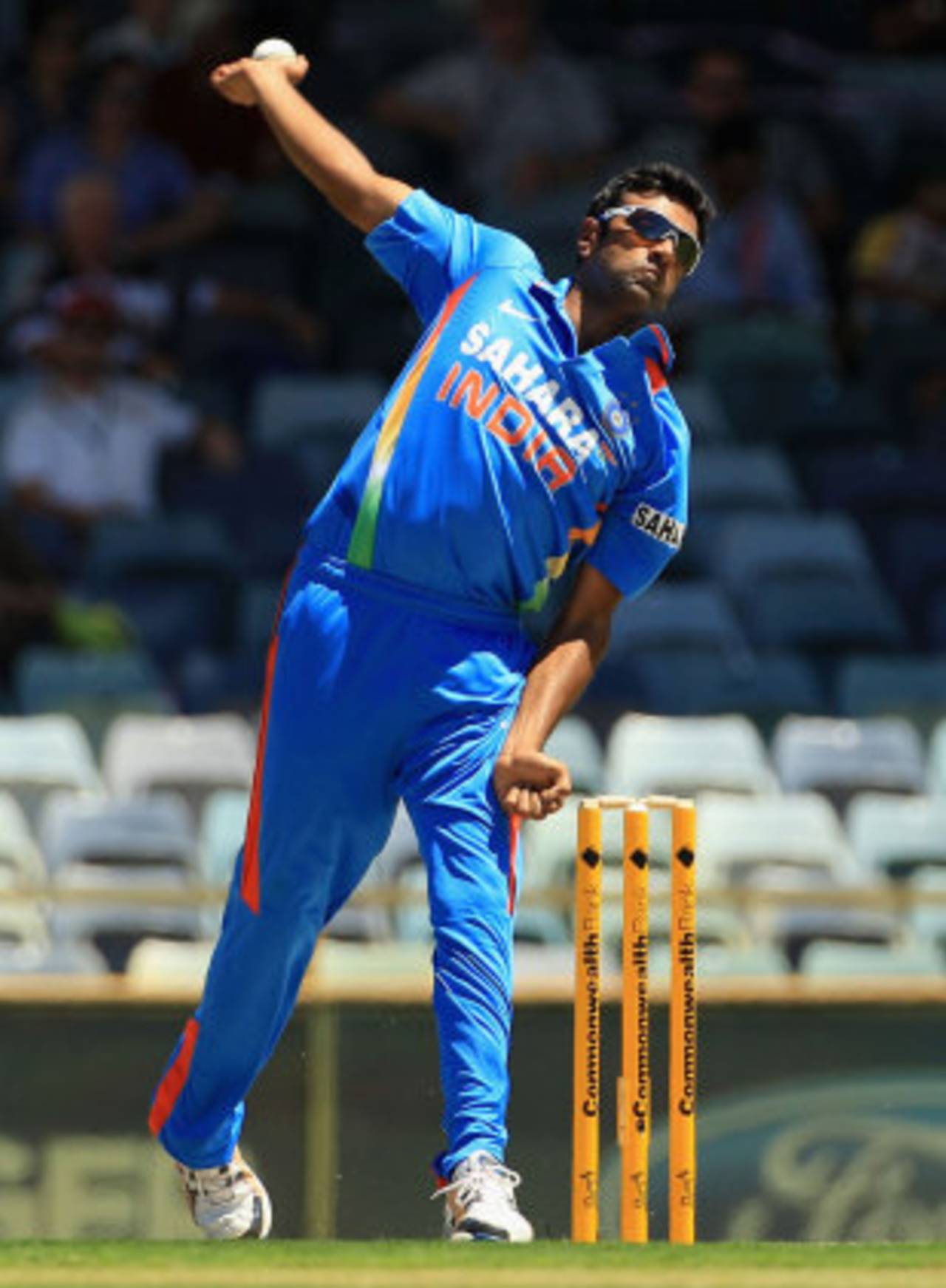The next time R Ashwin or Mohammad Hafeez or Suresh Raina pauses in his delivery stride, watch the umpire closely. The ICC has asked match officials to use their discretion to decide if the pause is unfair play under Law 42.2. This is a clarification in the latest, and unpublished, match officials almanac.
It was the same document that
allowed Steve Smith's catch of Fawad Alam in an ODI earlier this month. Smith had begun to move from slip towards leg slip even before Alam had had a chance to strike the ball, which under existing playing conditions is considered unfair and significant movement, but is being encouraged by the ICC as the fielders' anticipation.
The ICC has chosen to not publish these clarifications because it believes they are not changes to playing conditions per se, just clarifications for better and more relevant interpretations of the law. Both the fielder movement as a response to switch hits and reverse-sweeps and other premeditations, and the bowlers' pause are developments that have crept into the game without being covered by specific laws and playing conditions, the ICC feels. There is greater autonomy to the on-field umpire in these instances now.
"There is no stopwatch being used to measure the length of the pause," an ICC spokesperson told ESPNcricinfo. "This is one issue where the umpires on the day need to judge what is unfair.
"The pause before delivery has not been specifically outlawed but each incident of this nature will be judged on its merits and will be dealt with under Law 42.2. When the umpires feel that a bowler is deliberately using this tactic unfairly to distract a batsman they can rule dead ball."
There can be an endless debate on what significant and unfair movement is, or what constitutes a significant and long pause, which will only be accentuated by its relying on how the umpire on the day sees it. Moreover the fact that the ICC hasn't publicised these has potential to create controversy, as was evident in Alam's case. The ICC thinks otherwise.
"The Law was designed to prevent a fielder intentionally deceiving a batsman," the ICC said. "It was silent on a fieldsman anticipating where the ball is going based on the movement of a batsman. Cricket did what any other sport would do: prevent a player getting an unfair advantage through deception, but encourage the skill of anticipation and reading the play.
"We have a number of video examples from recent years of a slip fieldsman anticipating where a paddle sweep is going and moving in that direction just before the ball has reached the striker. None of these examples was called dead ball by the umpires on the day when interpreting the same Law, so the 'change' you refer to would have been if we had instructed the umpires to call dead ball in those circumstances.
"The instruction included in the umpire's almanac was a clarification, not a change to what was happening in practice."
There are many, however, who have wondered why the umpires hadn't been doing their job, which was to restrict the fielders' movement behind the batsman's back before the ball had reached him. It hadn't become contentious because there have only been examples of the movement resulting in a wicket on the odd occasion, and that too in domestic cricket.
Sidharth Monga is an assistant editor at ESPNcricinfo
